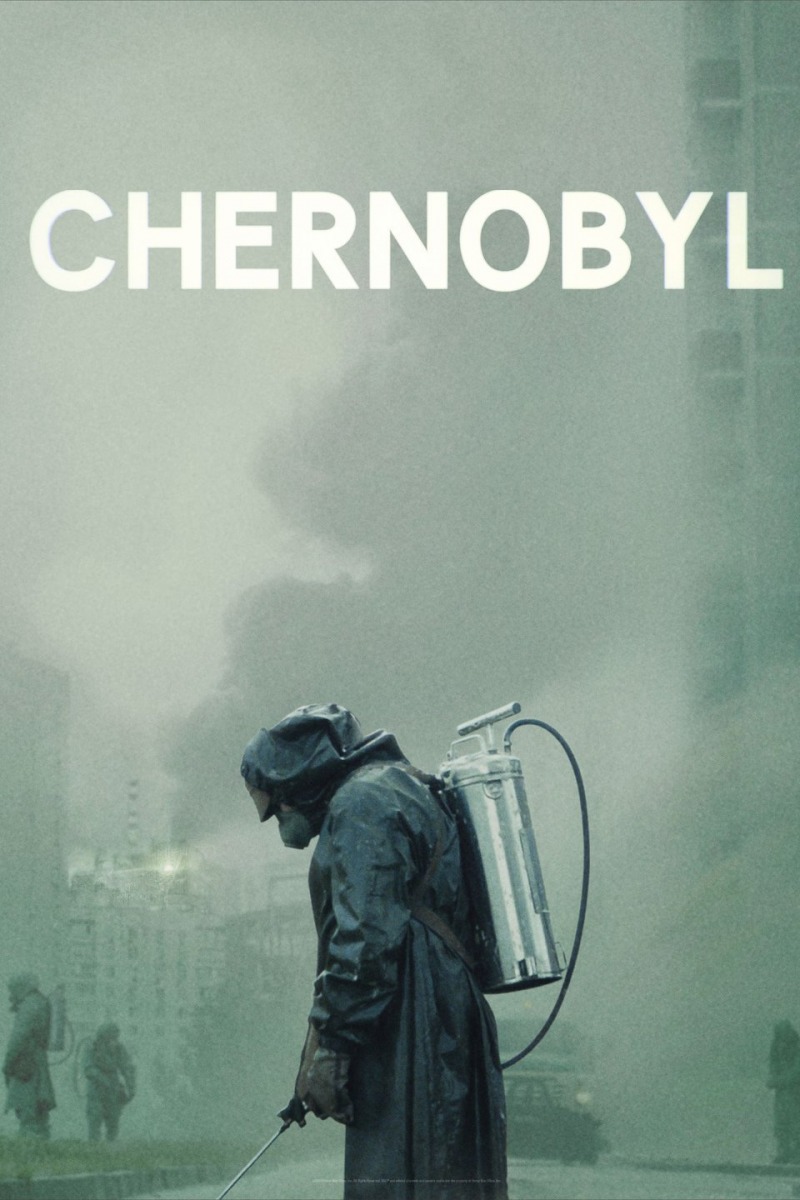
Chernobyl |
← |
Chernobyl dramatizes the story of the April 1986 nuclear plant disaster which occurred in the Ukrainian Soviet Socialist Republic (Soviet Union), telling the stories of the people who caused the disaster and those who responded to it.[1] The series depicts some of the lesser known stories of the disaster, including the efforts of the firefighters who were the first responders on the scene, volunteers, and teams of miners tasked with digging a critical tunnel under Reactor 4.
Principal photography began in April 2018 in Lithuania. Initial filming started on May 13, 2018, in Fabijoniškės, a residential district in Vilnius, Lithuania, which was used to portray the Ukrainian city of Pripyat, since the district maintained an authentic Soviet atmosphere. An area of densely built panel housing apartments served as a location for the evacuation scenes. Director Johan Renck heavily criticised the amount of diverse and eye-catching modern windows in the houses, but was not concerned about removing them in post-production. At the end of March, production moved to Visaginas, Lithuania, to shoot both the exterior and interior of the Ignalina Nuclear Power Plant, a decommissioned nuclear power station that is sometimes referred to as "Chernobyl's sister" due to its visual resemblance and the nuclear reactor design used at both Chernobyl and Ignalina (RBMK nuclear power reactor). In early June 2018, production moved to Ukraine to shoot minor final scenes. The filming of Chernobyl took 16 weeks.
Writer Craig Mazin began researching for the project in 2014, by reading books and government reports from inside and outside of the Soviet Union. Mazin also interviewed nuclear scientists to learn how a reactor works, and former Soviet citizens to gain a better idea of the culture in 1986. Mazin also read several first-person accounts in order to bring additional authenticity to the story. He explained, "When you're reading the personal stories of people who were there — people who lived near the plant, people who worked at the plant, people who were sent to Chernobyl as part of the effort to clean it up — in those individual accounts, that's really where the story came alive".
Mazin's interest in creating the series originated when he decided to write something that addressed "how we're struggling with the global war on the truth right now".Another inspiration is that he knew Chernobyl exploded, but he did not know why. He explained, "I didn't know why, and I thought there was this inexplicable gap in my knowledge ... So, I began reading about it, just out of this very dry, intellectual curiosity, and what I discovered was that, while the story of the explosion is fascinating, and we make it really clear exactly why and how it happened, what really grabbed me and held me were the incredible stories of the human beings who lived through it, and who suffered and sacrificed to save the people that they loved, to save their countrymen and to save a continent, and continued to do so, against odds that were startling and kept getting worse. I was so moved by it. It was like I had discovered a war that people just hadn't really depicted, and I became obsessed". Mazin said that "The lesson of Chernobyl isn't that modern nuclear power is dangerous. The lesson is that lying, arrogance, and suppression of criticism are dangerous".
| ↑ | ← |




